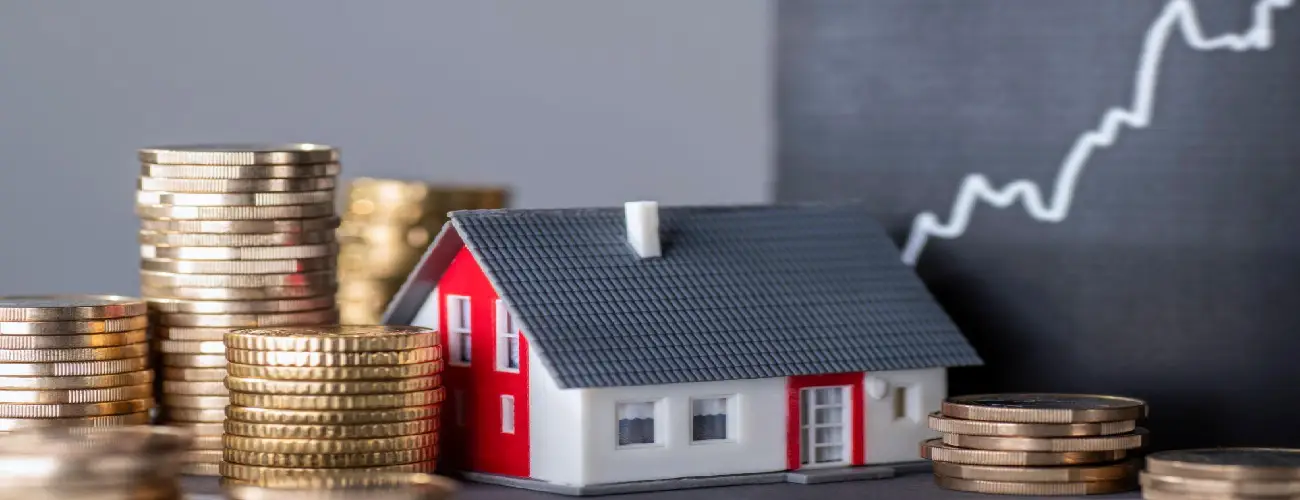What to Look for in a Real Estate Investment: A Beginner’s Guide to Smarter Property Choices

Real estate investing can be a powerful way to build wealth. But to be successful, you need to understand what makes a property a good investment. Whether you're thinking about buying your first rental property, flipping houses, or diversifying your portfolio, there are key factors that can make or break your success.
Here’s a simple, beginner-friendly guide to help you understand what to look for in a real estate investment.
1. Location is Everything
One of the most important rules in real estate is: location, location, location. A great property in a bad area can be a poor investment, while a modest property in a growing, high-demand neighborhood can be a goldmine.
Look for areas with:
-
Strong job growth
-
Good schools
-
Low crime rates
-
Public transportation access
-
Future development plans
Spend time exploring the neighborhood. Check how close it is to amenities like grocery stores, parks, hospitals, and restaurants. A desirable location increases the value of the property and ensures long-term demand.
2. Know the Numbers
Before you buy, understand how the numbers stack up. A property might look like a great deal on the surface, but without solid math, it could become a financial burden.
Key metrics to consider include:
-
Cash flow: Will the rental income cover expenses and provide profit?
-
Cap rate: Your return on investment based on net operating income.
-
Occupancy rate: High vacancies mean less income.
-
Operating expenses: Maintenance, property management, taxes, insurance.
Use online calculators or spreadsheet tools to project income, expenses, and potential returns.
3. Understand the Market
Every real estate market is different. Before buying, take time to study:
-
Current price trends
-
Rental demand
-
Future growth potential
-
Seasonal patterns
A hot market may seem tempting, but prices might be inflated. On the other hand, emerging markets may offer lower entry costs and higher returns over time. Stay informed by following local news, real estate blogs, and talking to local agents or investors.
4. Inspect Property Condition
A property's physical condition can greatly affect your bottom line. Fixer-uppers can be profitable—but only if you budget correctly and understand the renovation process.
Look out for:
-
Structural issues (foundation, roof, plumbing, electrical)
-
Cosmetic updates (paint, flooring, kitchen, bathrooms)
-
Code violations or zoning restrictions
-
Pest or mold problems
Always get a professional inspection before buying. It can save you from expensive surprises later.
5. Consider Rental Potential
If your goal is rental income, research how much rent you can realistically charge. Compare similar properties in the area and see how long they stay on the market.
Ask yourself:
-
Is there demand for long-term rentals or short-term (like Airbnb)?
-
What are the average rents in the area?
-
Are there rent control laws?
-
Will the property attract reliable tenants?
A property that looks great but can’t generate enough rental income may not be worth the investment.
6. Evaluate Financing Options
Your investment strategy will impact how you finance your purchase. You may choose a traditional mortgage, hard money loan, or even use home equity from another property.
Key things to compare:
-
Interest rates
-
Loan terms
-
Down payment requirements
-
Monthly mortgage payments
Make sure the financing aligns with your investment goals. You should also consider how different loan types affect your cash flow.
7. Factor in Property Management
Do you plan to manage the property yourself or hire a property manager? Self-managing can save money, but it requires time, effort, and knowledge of landlord-tenant laws.
A good property manager will:
-
Screen tenants
-
Handle maintenance issues
-
Collect rent
-
Deal with legal matters
If you’re investing out of state or have multiple properties, a property manager can be worth the cost.
8. Legal & Tax Considerations
Real estate investments come with legal and tax responsibilities. It’s smart to consult a real estate attorney and a tax advisor before you buy.
You’ll need to understand:
-
Landlord-tenant laws
-
Zoning regulations
-
Depreciation and tax deductions
-
Capital gains tax when you sell
Setting up a legal structure, like an LLC, can also offer liability protection and tax benefits.
9. Have an Exit Strategy
Even the best investment plan should include a clear exit strategy. What will you do if the market turns or your goals change?
Consider:
-
Will you hold long-term or flip?
-
What if the property doesn't appreciate as expected?
-
Is there demand to sell in the area?
-
Can you refinance or turn it into a rental?
Knowing your options can help you stay flexible and minimize losses.
10. Trust Your Research, Not Just Your Gut
Intuition can be helpful, but data is essential. Trust the numbers, do your research, and avoid making emotional decisions. A good deal on paper backed by solid analysis is better than a “gut feeling.”
Final Thoughts
Real estate can be one of the best ways to build long-term wealth, but success doesn’t happen by accident. It takes research, planning, and a clear understanding of what to look for.
Start small, stay informed, and never rush a decision. The right investment is out there—and now you know what to look for when you find it.
Important Links







